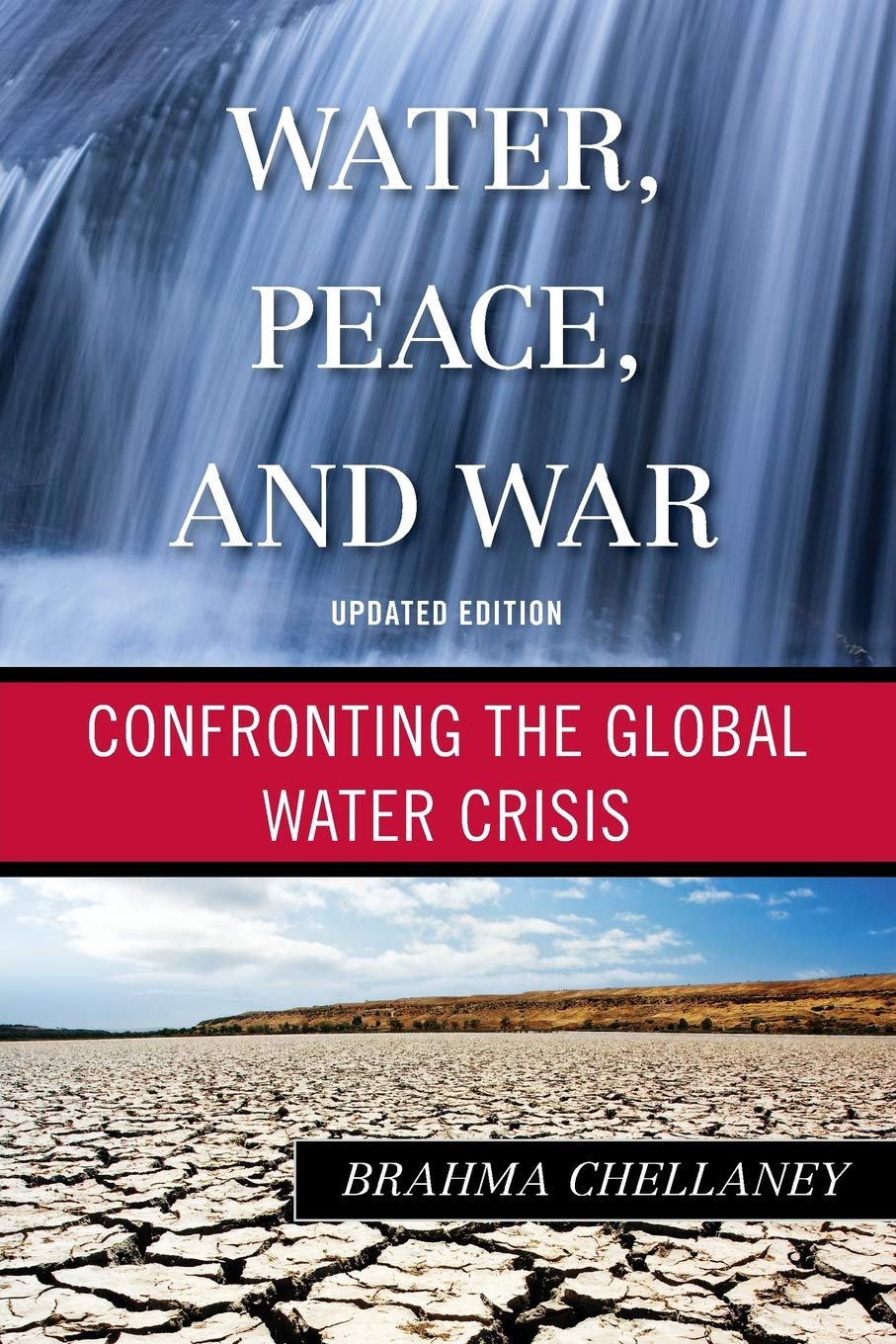Predicting the future of global water stress
- Details
- Kategorie: Klimawandel
MIT researchers find that by 2050 more than half the world’s population will live in water-stressed areas and about a billion or more will not have sufficient water resources.
Population growth and increasing social pressures on global water resources have required communities around the globe to focus on the future of water availability. Global climate change is expected to further exacerbate the demands on water-stressed regions. In an effort to assess future water demands and the impacts of climate change, MIT researchers have used a new modeling tool to calculate the ability of global water resources to meet water needs through 2050.
The researchers expect 5 billion (52 percent) of the world’s projected 9.7 billion people to live in water-stressed areas by 2050. They also expect about 1 billion more people to be living in areas where water demand exceeds surface-water supply. A large portion of these regions already face water stress — most notably India, Northern Africa and the Middle East.
This is how your world could end
- Details
- Kategorie: Klimawandel
 (Peter Brannon - TheGuardian) In an extract from his book Ends of the World, Peter Brannen examines mass extinction events and the catastrophic outcome of rising temperatures for all the world’s population
(Peter Brannon - TheGuardian) In an extract from his book Ends of the World, Peter Brannen examines mass extinction events and the catastrophic outcome of rising temperatures for all the world’s population
Many of us share some dim apprehension that the world is flying out of control, that the centre cannot hold. Raging wildfires, once-in-1,000-years storms and lethal heatwaves have become fixtures of the evening news – and all this after the planet has warmed by less than 1C above preindustrial temperatures. But here’s where it gets really scary.
If humanity burns through all its fossil fuel reserves, there is the potential to warm the planet by as much as 18C and raise sea levels by hundreds of feet. This is a warming spike of an even greater magnitude than that so far measured for the end-Permian mass extinction. If the worst-case scenarios come to pass, today’s modestly menacing ocean-climate system will seem quaint. Even warming to one-fourth of that amount would create a planet that would have nothing to do with the one on which humans evolved or on which civilisation has been built. The last time it was 4C warmer there was no ice at either pole and sea level was 80 metres higher than it is today.
ganzen Artikel bei TheGuardian.com lesen
Website zum Buch: http://peterbrannen.com
Bei Amazon.de kaufen: http://amzn.to/2eXgLgH
Season of Smoke - In a Summer of Wildfires and Hurricanes, My Son Asks “Why Is Everything Going Wrong?”
- Details
- Kategorie: Klimawandel
(Naomi Klein - The Intercept) We hear about the record-setting amounts of water that Hurricane Harvey dumped on Houston and other Gulf cities and towns, mixing with petrochemicals to pollute and poison on an unfathomable scale. We hear too about the epic floods that have displaced hundreds of thousands of people from Bangladesh to Nigeria (though we don’t hear enough). And we are witnessing, yet again, the fearsome force of water and wind as Hurricane Irma — one of the most powerful storms ever recorded — leaves devastation behind in the Caribbean, with Florida now in its sights.
Yet for large parts of North America, Europe, and Africa, this summer has not been about water at all. In fact it has been about its absence; it’s been about land so dry and heat so oppressive that forested mountains exploded into smoke like volcanoes. It’s been about fires fierce enough to jump the Columbia River; fast enough to light up the outskirts of Los Angeles like an invading army; and pervasive enough to threaten natural treasures, like the tallest and most ancient sequoia trees and Glacier National Park.
For millions of people from California to Greenland, Oregon to Portugal, British Columbia to Montana, Siberia to South Africa, the summer of 2017 has been the summer of fire. And more than anything else, it’s been the summer of ubiquitous, inescapable smoke.
An Inconvenient Sequel: Truth To Power (2017) - Official Trailer - Paramount Pictures
- Details
- Kategorie: Klimawandel
Gletscher-Schmelze: Unsere Kinder werden eisfreie Alpen erleben
- Details
- Kategorie: Klimawandel
(Süddeutsche.de) Die Tourenberichte in den Alpinismusforen sind eindeutig: "Gletscherbrücken halten nicht mehr lange", "viel Blankeis", "loses Gestein". Wer derzeit Hochtouren unternimmt, spürt die Auswirkungen des Klimawandels wie kaum jemand sonst. Gletscher, die man vor wenigen Jahren noch begangen hat, sind schlicht verschwunden.
Gletscher, ade
- Details
- Kategorie: Klimawandel
(Süddeutsche.de) Die Alpen sind besonders vom Klimawandel betroffen. Ein Vergleich von historischen und aktuellen Fotos zeigt, wie rasant die Gletscher schmelzen.
"Es ist bei der Beobachtung der Gletscherstände wie bei meteorologischen Aufzeichnungen", schrieb Eduard Richter in den 1890er Jahren. "Die einzelne Beobachtung ist so gut als wertlos, erst eine Reihe gestattet sachgemäße Verwertung." Der Österreicher war einer der Ersten, der die Gletscher der Alpen umfangreich kartierte und ihre Schwankungen protokollierte. Heute ist dank ihm und vieler weiterer "Gletscheraufseher" klar: Seit Ende des 19. Jahrhunderts schmelzen die Gletscher in den Alpen.
... den ganzen Artikel und die Bilder finden Sie auf Sueddeutsche.de
USA: Entwurfsbericht des U.S. National Climate Assessment bestätigt grundlegende Wahrheit des Klimawandels
- Details
- Kategorie: Klimawandel
(OekoNews.at) US-Klimabericht soll im Jahr 2018 veröffentlicht werden - Viele Ergebnisse sind bereits bekannt - Ein wichtiger Moment für Klimaschutz-Action der USA ist die Annäherung. Die erste von zwei Teilen der neuesten US National Climate Assessment (NCA), einem Bericht von Top-U.S.-Wissenschaftler aus 13 Bundesbehörden, ist knapp vor der Genehmigung. Endgültige Kommentare sind am Freitag fällig, bevor der Bericht der Verwaltung veröffentlicht werden kann. Vom Kongress im Jahr 1990 beauftragt, wird die NCA von der "White House Office of Science and Technology Policy" durch das interagency U.S. Global Change Research Programm verwaltet.
Super-Hitzewellen auch in Europa?
- Details
- Kategorie: Klimawandel
(Bild der Wissenschaft) Auch wenn dieser Sommer bei uns eher wechselhaft ausfällt: In Zukunft könnten auch Mitteleuropa häufiger tropisch-heiße Perioden bevorstehen. Denn schon bei einer Erwärmung um zwei Grad über prä-industrielle Werte steigt das Risiko für schwülwarme und damit besonders gesundheitsbelastende Hitzewellen in Europa auf 30 Prozent an, bei vier Grad könnte eine solche Tropenhitze sogar in jedem Sommer vorkommen. Selbst Temperaturen von 55 Grad wären dann bei uns nicht mehr ausgeschlossen, wie eine Studie belegt.
Weitere Beiträge ...
- Introducing the terrifying mathematics of the Anthropocene
- This is what ancient, 3km long ice cores tell us about climate change
- Billionen Dollar für Klimamaßnahmen Plan B für eine zu heiße Erde
- 2017 is so unexpectedly warm it is freaking out climate scientists
- »Urlaub war uns wichtiger als eure Zukunft, sorry«
- Arks of the Apocalypse
- Neuer Bericht: Ungebremster Klimawandel gefährdet Entwicklungsfortschritte in Asien
- Climate change: Nearly 700 'natural thermometers' demonstrate the world is warmer than its ever been
- Methan vor Helgoland ausgetreten
- Major correction to satellite data shows 140% faster warming since 1998
- The Power and Peril of “Climate Disaster Porn”
- The Uninhabitable Earth
- 2020 - Don't be late
- Arctic stronghold of world’s seeds flooded after permafrost melts
- Forscher erklären Pause der Erderwärmung
- Anstieg des Meeresspiegels: Grönlandeis könnte komplett verschwinden
- Harald Lesch fordert endlich Konsequenzen aus dem Wissen um den Klimawandel zu ziehen
- Grüne Wunder: Unternehmer investieren in die Energie- und Verkehrswende
- Flug nach San Francisco - fünf Quadratmeter Arktiseis weg
- CO2-Emissionen: Gefährliche Klimaschulden








